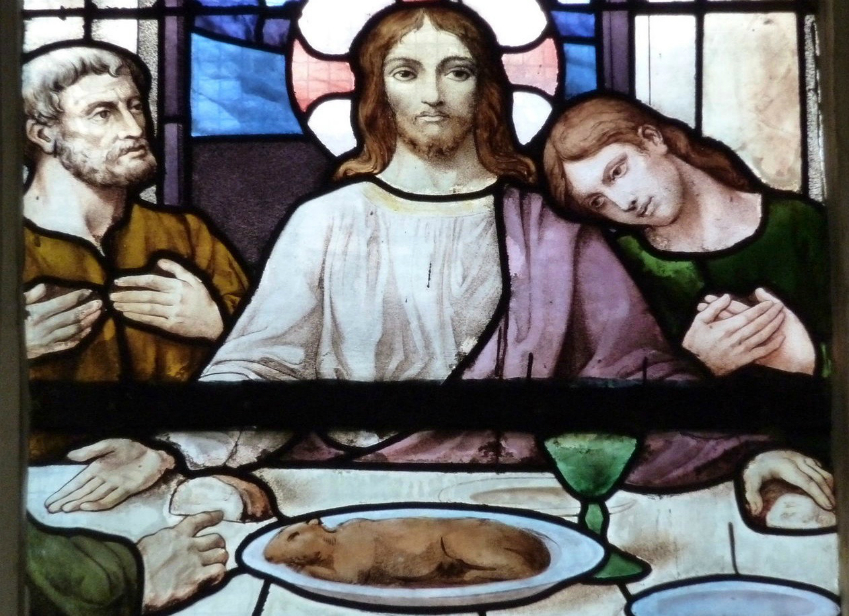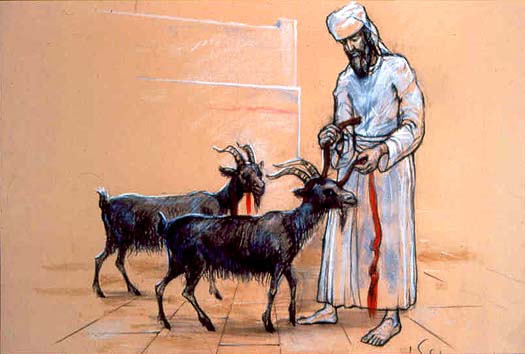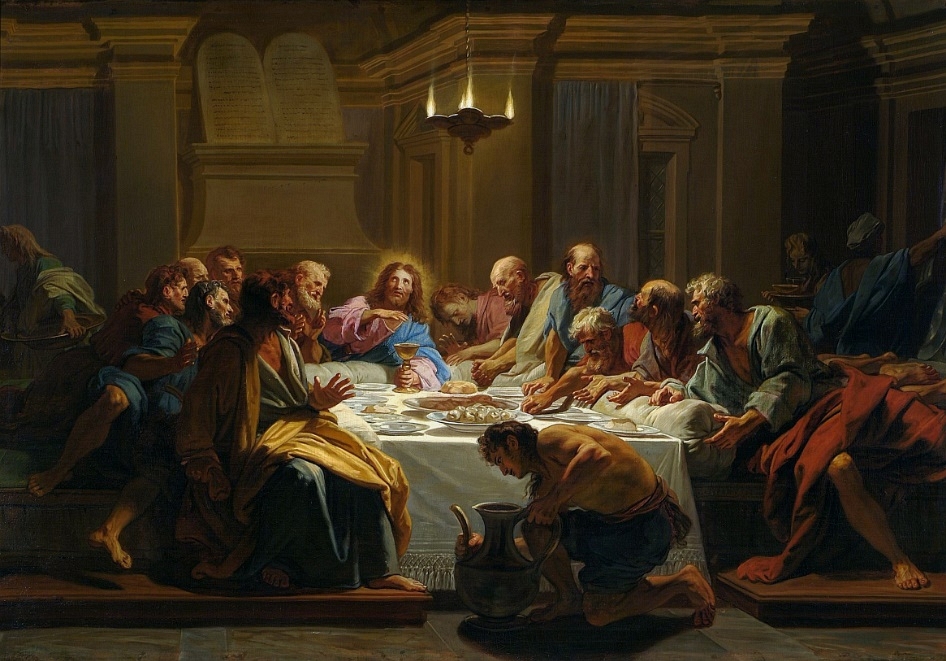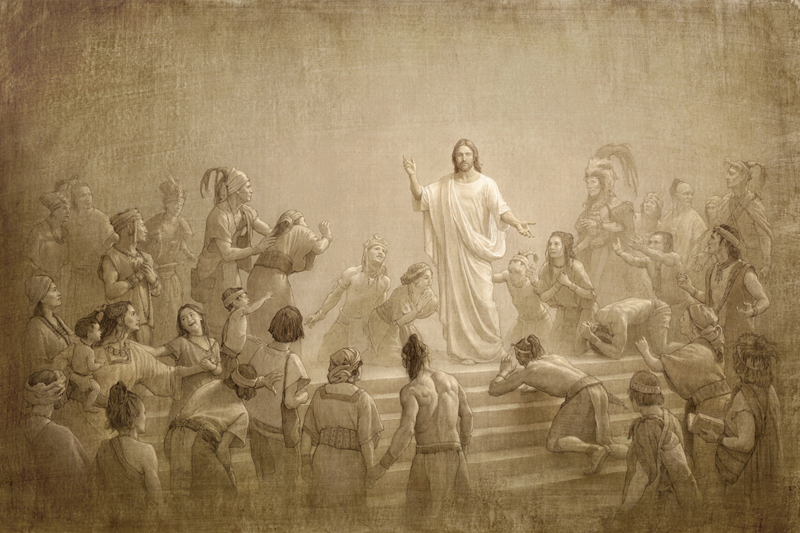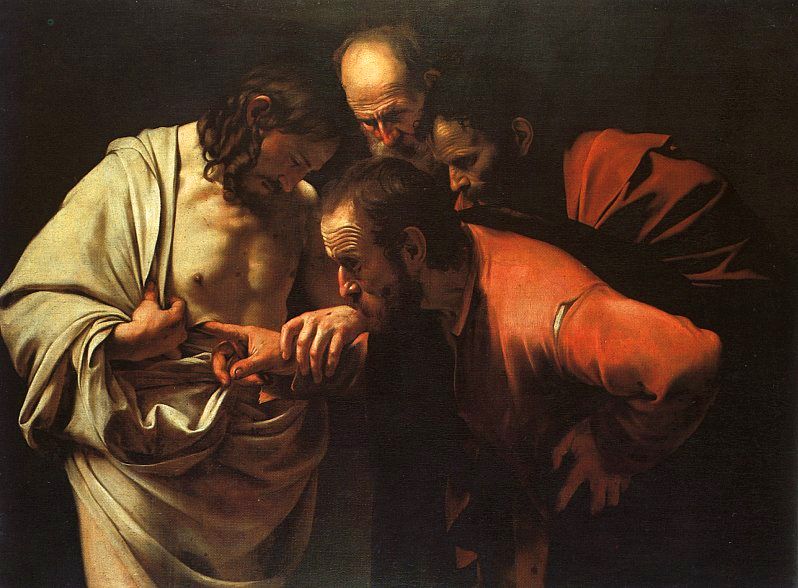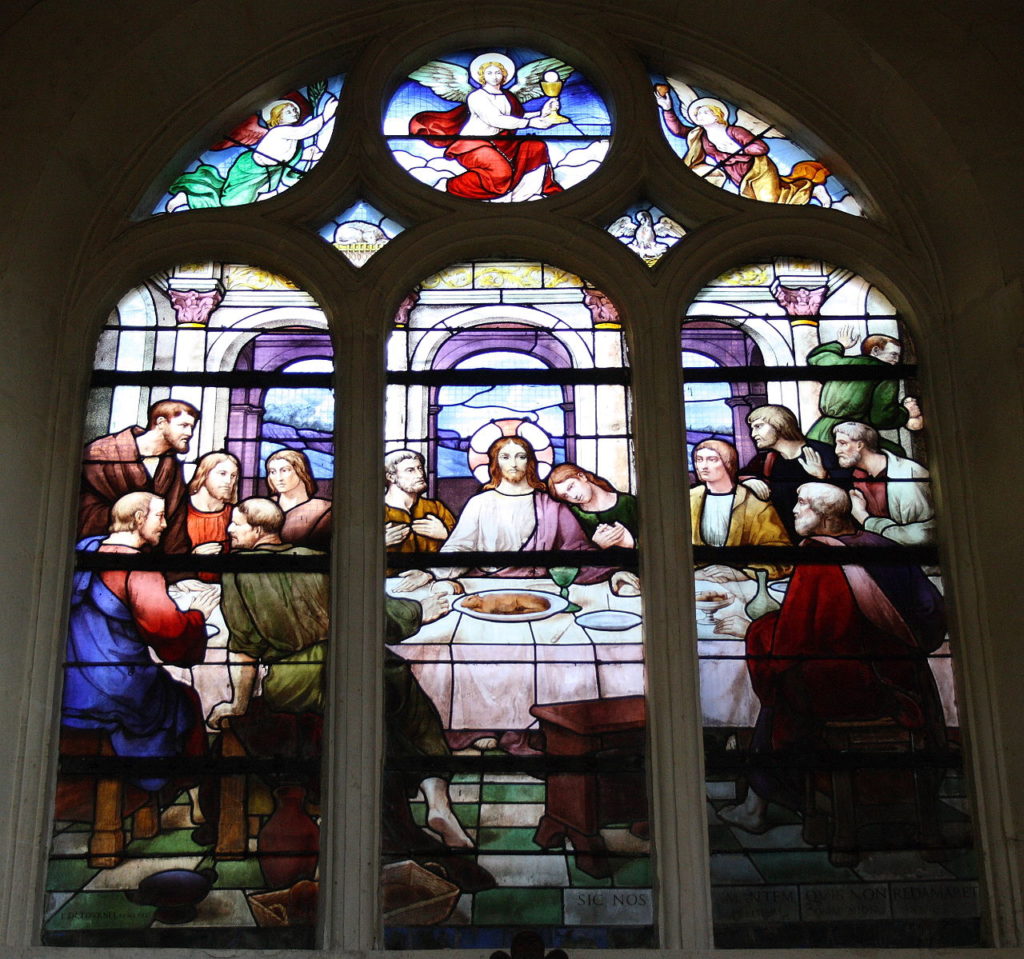When you listen to the sacrament prayers and take part in eating the bread and the drinking of the water — what do you think about it? Repenting of your weekly sins? Asking for the Lord’s spirit? Imagining that the bread and water really do have some power?
I’ve been thinking about the sacrament. And how to make it more meaningful each Sabbath.
We do many things as a congregation to prepare for the sacrament, such as singing a sad hymn about Jesus’s death and hearing the bishop read a passage of scripture. Lately, I have been focusing on the words of the sacrament prayers and trying to understand what they mean to me. I’ve learned a couple of new ideas as I was seeking answers:
I read this while sitting and thinking — that the sacrament is not only the reenactment of the Lord’s Last Supper but also the Day of Atonement when the High Priest offered a sacrifice on the altar:
Some early Christian writers quote ‘Scripture’ that cannot now be found in the Old Testament. The Letter of Barnabas, for example, a Christian text from the second or third generation, quotes frequently from unknown scriptures: ‘A heart that glorifies its maker is a sweet savour to the LORD’; ‘I am now making the last things even as I made the first’; ‘If my sons keep the Sabbath I will show mercy upon them’ and many more.
Of considerable interest is a quotation about the day of atonement sacrifice that would link it directly to the original understanding of the Eucharist. ‘And what does it say in the prophet. “Let them eat of the goat which is offered for their sins at the fast, and [note this carefully] let all the priests but nobody else, eat of its inward parts, unwashed and with vinegar.”’ Jesus drank vinegar just before he died, said Barnabas, to prepare himself as the atonement sacrifice that the priests consumed. This would explain why the Eucharist has the imagery of consuming blood, an otherwise un-Jewish practice. Blood was consumed with the unwashed sacrifice on the day of atonement. Thus the Eucharist is not drawn just from Passover, but, as set out in Hebrews, from the day of atonement also (Heb. 9.11–14). But which ‘prophet’ was Barnabas quoting, and why has this crucial ‘temple’ text not survived elsewhere? ( Barker, Margaret. Temple Mysticism: An Introduction (p. 29). SPCK. Kindle Edition.)
The Day of Atonement aligns with the LDS sacrament, Christian communion, and Catholic Eucharist. The sacrament engulfs the rituals of the Day of Atonement of the ancient Israelites and the Last Supper of the first disciples. Looking at what the early apostles recorded, we find that the last supper also has an element of looking forward to Christ’s return —
And as they were eating, Jesus took bread, blessed and broke it, and gave it to the disciples and said, “Take, eat; this is My body.”
Then He took the cup, and gave thanks, and gave it to them, saying, “Drink from it, all of you. For this is My blood of the new covenant, which is shed for many for the remission of sins. But I say to you, I will not drink of this fruit of the vine from now on until that day when I drink it new with you in My Father’s kingdom.” (Matt 26:26-29) [also Mark 14:22-25, Luke 22:14-20, 1 Cor. 11:23-26]
The sacrament prayers in the LDS church bless and make sacred (a) the bread to be eaten in memory of the body of Christ and (b) the water to drink in memory of the blood of Christ. We tend to focus back on the atonement, remembering Christ’s sacrifice:
O God, the Eternal Father, we ask thee in the name of thy Son, Jesus Christ, to bless and sanctify this bread to the souls of all those who partake of it; that they may eat in remembrance of the body of thy Son, and witness unto thee, O God, the Eternal Father, that they are willing to take upon them the name of thy Son, and always remember him, and keep his commandments which he hath given them, that they may always have his Spirit to be with them. Amen. (Moroni 4)
O God, the Eternal Father, we ask thee, in the name of thy Son, Jesus Christ, to bless and sanctify this wine to the souls of all those who drink of it, that they may do it in remembrance of the blood of thy Son, which was shed for them; that they may witness unto thee, O God, the Eternal Father, that they do always remember him, that they may have his Spirit to be with them. Amen. (Moroni 5)
I read an article, What’s missing from the sacrament prayers:
If you look at 3 Nephi 18, Jesus gives the people the bread of the sacrament and explains:
And this shall ye always observe to do, even as I have done, even as I have broken bread and blessed it and given it unto you. And this shall ye do in remembrance of my body, which I have shown unto you. And it shall be a testimony unto the Father that ye do always remember me. and if ye do always remember me, ye shall have my Spirit to be with you” (3 Ne. 18:6-7).
Compare this to the prayer we use today:
…that they may eat in remembrance of the body of thy Son, —————–and witness unto thee, O God, the Eternal Father, that they are willing to take upon them the name of thy Son, and always remember him,
You will notice the part missing in our sacrament prayer today: “which I have shown unto you.” This is because the Nephites saw Christ and became witnesses of his body. As I reflected on this, I decided to add a thought to the prayer as I prepare to take the bread. Since I have not seen Christ, I cannot say the above, but I can add in my mind the words, “which you(Christ) will show unto me one day.” When I reflect on this, I sense a greater meaning to the sacrament — one of hope and faith that I will one day see Christ and be a true witness of his body and atonement.
Originally posted Aug 2017, updated June 2021.

